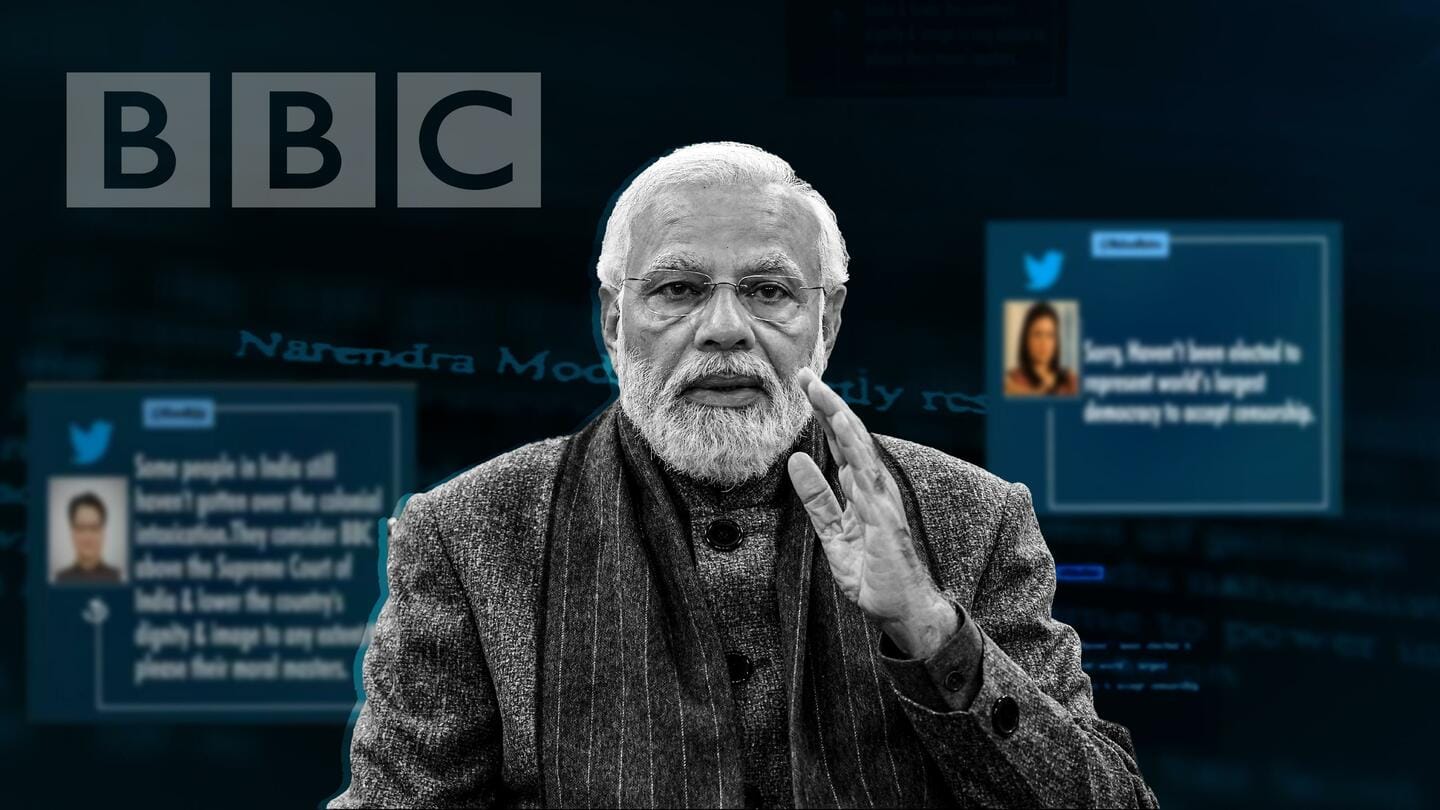Movies
India: The Modi Question. Fear of art and what it tells you about a regime.

The Central Government has put a ban on the BBC documentary “India: The Modi Question“. And is trying its best to suppress its distribution. Why trying to have authority on Art is such a big deal and what it indicates?
Art has been a mode of expression for a very long time. Sometimes art that deserves our attention often finds itself in the controversies. BBC documentary on Narendra Modi, “India: The Modi Question” is one such piece that grabbed the attention of the nation. The documentary takes us back to 2002 and examines Prime Minister Narendra Modi and his role during the anti-Muslim riots.
The central government has called the documentary “India: The Modi Question” a propaganda tool. It is reflecting a biased and colonial mindset as per the Ministry of external affairs. The government has banned the documentary and restricted people from sharing the clips of it anywhere on the internet. We have been witnessing authorities interrupting the screenings of it at student gatherings and the step is is being criticized as it compromises with the right of free speech.
As the government used emergency powers under its information and technology laws. Twitter and YouTube have removed many videos and links from its platform upon the government’s request. But who can stop things from spreading in the digital age? Despite the numerous attempts the documentary is sparking views and getting the attention it needed. This move has also started a wave of criticism from the opposition and human rights groups and thus, the backlash.
The moves made by government failed in their attempt to divert the attention from it instead it did the exact opposite. We got to see the snowball effect happening here. Despite the ban, students from different educational institutions gathered for the group screenings. Which were obviously not supported by the government. When the students of Jawaharlal Nehru University (JNU) gathered for group screening, authorities did a power and internet cut to stop them from watching the film.
It might seem very funny to see how people in power are going nuts on a piece of art. Fearing from art, expression or questioning is a bad indicator for the stability of a nation. According to last year’s Press Freedom Index, out of 180 countries, India is at the 150th position in terms of Press freedom which has declined in recent years. And the current government is surrounded by the accusation of silencing criticism. Authoritative forms of governments and leadership around the world are known for their biased control over art and media.
And people who criticize this form of oppression are attacked for being controversial and supporting propaganda against the regime. According to the reports of Freemuse, which is one of the largest international organizations defending artistic expression rights. Countries like Turkey, China and Russia have abused counter terror laws against artists and the media. In the easiest language possible, these laws impose censorship on any work that goes against the ideologies of the government. People who speak against it are harassed, threatened or imprisoned and very often, they are also accused of having ties with some terrorist group.
This reminds us of the case of Ai Weiwei who is known for art, activism and his crusade against the Chinese government. He used his art as a tool to speak against censorship and criticized the Chinese government policies. Sometimes expressing through art can be the bravest thing one can do. In 2011, he was detained by the police for 81 days which was followed by a four year house arrest. This was just one of the many cases of suppressing the voice of artists. Every act of such suppression is led by a larger pattern of continuous violations of freedom of speech. Whenever this oppression is allowed to prevail, it leads to people voluntarily backing off as they are under constant fear and want to avoid controversy and any kind of negative attention towards them and we are witnessing it today which surely gives us a reason to be alert.
Criss Jami lines are to be remembered when we come across such forms of oppression that “Sometimes people lose their right to remain silent when pressured to remain silent.” The act of revolt isn’t an act of treachery, most of the time, it is the most patriotic thing to do.
Also Read – How Jawaharlal Nehru Became The Reason For India’s First Cosmetic Brand ?
Follow Us – @Dis_cultured
Pingback: The Cxtremist Culture Of Boycott Bollywood And Why Should We Care? - Discultured
Pingback: Why are Iranian women cutting their hair? - Discultured